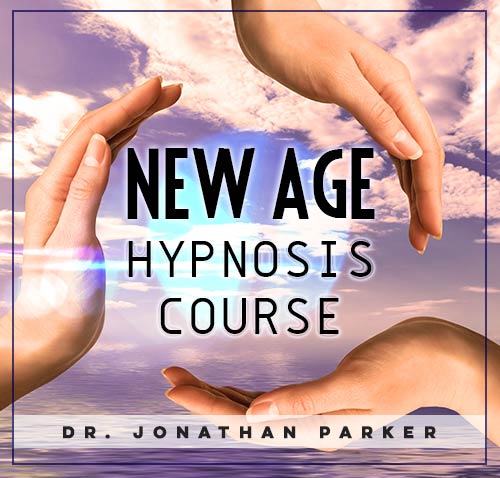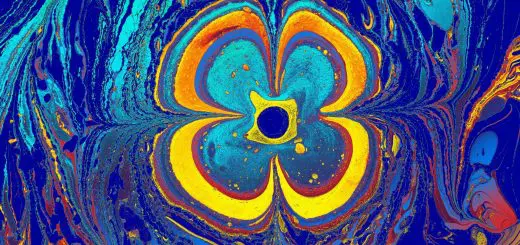Holistic Healing: The New Age Approach

Looking for more amazing products? Check out our online store and explore our collection here! Happy shopping!
Before diving in, please note: This post is for informational purposes only. If you’d like to know more about how we approach topics, feel free to check out our friendly Disclaimer Page.
Hey there, amazing readers! 
We’re committed to delivering quality posts, and your support (even just sticking around despite the ads) means everything to us. So, bear with us, and thanks for helping us keep the good vibes rolling. Now, on to the fun stuff!
TRANSLATE BUTTON AT THE END OF THE ARTICLE
Holistic Healing: An Overview
Holistic healing is a comprehensive approach to health and wellness that focuses on treating the individual as a whole, addressing the mind, body, and spirit.
It encompasses a wide range of practices and therapies that aim to promote balance and harmony within a person.
Rather than just treating symptoms, holistic healing seeks to uncover the root causes of illness and address them from a holistic perspective.
This approach recognizes that the mind, body, and spirit are interconnected and that imbalances in one area can affect the others.
Holistic healing emphasizes the importance of treating the underlying causes of illness, rather than just the symptoms, to achieve long-lasting health and wellness.
It also encourages individuals to take an active role in their own healing process, promoting self-care and self-awareness.
Holistic healing is not a one-size-fits-all approach; it is tailored to each individual’s unique needs and circumstances.
It offers a more personalized and holistic approach to health and wellness, focusing on the individual as a whole rather than just their physical symptoms.
By addressing all aspects of a person’s health and well-being, holistic healing aims to create a sense of balance and harmony that can lead to improved overall health and wellness.
Understanding the New Age Approach
The New Age approach to holistic healing is grounded in the belief that individuals have the power to heal themselves by tapping into their inner resources and connecting with the universal energy that surrounds them.
This approach emphasizes the interconnectedness of all things and the importance of aligning with the natural flow of energy in the universe.
New Age practitioners often draw on a wide range of techniques and therapies from both traditional and alternative medicine, as well as ancient healing practices from various cultures around the world.
They may incorporate practices such as energy healing, meditation, yoga, acupuncture, and herbal medicine into their holistic healing protocols.
The New Age approach to holistic healing is characterized by a deep respect for the natural world and a belief in the interconnectedness of all living beings.
It encourages individuals to cultivate a sense of mindfulness, self-awareness, and spiritual connection in order to promote healing and wellness on a deep level.
The Concept of Mind, Body, and Spirit
Holistic healing recognizes that the mind, body, and spirit are interconnected and that imbalances in one area can affect the others.
The mind-body-spirit connection is at the core of holistic healing, and practitioners believe that true healing occurs when all three aspects are in harmony.
The mind plays a crucial role in the healing process, as thoughts and emotions can have a powerful impact on physical health.
By addressing mental and emotional issues, holistic healing aims to promote a sense of peace and well-being that can support overall health and healing.
The body is also an important focus of holistic healing, with practitioners using a variety of physical therapies and treatments to promote health and wellness.
These may include massage, acupuncture, chiropractic care, and nutritional counseling, among others.
The spirit, or the individual’s inner essence or soul, is another key component of holistic healing.
Practitioners believe that spiritual well-being is essential for overall health and wellness, and may incorporate practices such as meditation, prayer, and energy healing to promote spiritual growth and healing.
Principles of Holistic Healing
Holistic healing is guided by several key principles that underpin its approach to health and wellness.
These principles include:
Treating the whole person: Holistic healing aims to address the physical, mental, emotional, and spiritual aspects of an individual to promote overall well-being.
Prevention: Rather than just treating symptoms, holistic healing focuses on preventing illness and promoting health through lifestyle changes and self-care practices.
Individualized care: Holistic healing recognizes that each person is unique and that their health needs should be addressed in a personalized and tailored way.
Empowerment: Holistic healing empowers individuals to take an active role in their own health and wellness by promoting self-care and self-awareness.
Balance and harmony: Holistic healing seeks to create a sense of balance and harmony within the individual, promoting a state of optimal health and well-being.
These principles guide practitioners in developing holistic healing protocols that are designed to enhance the individual’s overall health and wellness in a comprehensive and holistic way.
Common Practices in Holistic Healing
There are many common practices and therapies used in holistic healing to promote health and wellness.
Some of the most popular include:
Acupuncture: A traditional Chinese medicine practice that involves inserting thin needles into specific points on the body to promote healing and balance.
Massage therapy: A hands-on therapy that involves manipulating the body’s soft tissues to promote relaxation, reduce pain, and improve circulation.
Meditation: A practice that involves focusing the mind and calming the body to promote relaxation, reduce stress, and improve mental clarity.
Herbal medicine: The use of herbs and plant-based remedies to promote healing and address a variety of health issues.
Energy healing: Practices such as Reiki, Qi Gong, and Pranic Healing that involve working with the body’s energy field to promote healing and balance.
These practices are often used in combination with each other to create a holistic healing protocol that addresses the individual’s unique needs and promotes overall health and wellness.
Benefits of Holistic Healing
Holistic healing offers a wide range of benefits for individuals seeking to improve their health and well-being.
Some of the key benefits include:
Improved physical health: Holistic healing can help to address the underlying causes of illness and promote healing on a physical level.
Reduced stress and anxiety: Holistic healing practices such as meditation, yoga, and massage can help to reduce stress and promote relaxation.
Enhanced mental clarity: By promoting balance and harmony within the mind, body, and spirit, holistic healing can help to improve mental clarity and focus.
Increased energy and vitality: Holistic healing practices can help to boost energy levels and promote a sense of vitality and well-being.
Better overall quality of life: By addressing the whole person and promoting balance and harmony, holistic healing can improve overall quality of life and well-being.
These benefits make holistic healing a valuable approach for individuals seeking to improve their health and wellness in a comprehensive and holistic way.
Integrating Traditional and Alternative Medicine
Holistic healing often involves integrating traditional Western medicine practices with alternative and complementary therapies to create a comprehensive approach to health and wellness.
This integrative approach recognizes that both traditional and alternative therapies have value and can be used together to promote healing and well-being.
Some ways in which traditional and alternative medicine can be integrated in holistic healing include:
Using medications and surgery when necessary, while also incorporating practices such as acupuncture, herbal medicine, and energy healing to promote healing and balance.
Working with a team of healthcare providers, including doctors, nurses, therapists, and holistic practitioners, to create a comprehensive treatment plan that addresses the individual’s unique needs.
Encouraging open communication and collaboration between practitioners of different modalities to ensure that the individual receives the most effective and appropriate care for their health issues.
By integrating traditional and alternative medicine in a holistic approach to healing, individuals can benefit from a comprehensive and personalized treatment plan that addresses their physical, mental, emotional, and spiritual well-being.
The Role of Energy in Healing
Energy plays a significant role in holistic healing, with practitioners believing that all living beings are made up of energy that flows through the body and surrounds it in an energy field.
This energy field, often referred to as the aura, can become imbalanced or blocked, leading to physical, mental, and emotional issues.
Practitioners of energy healing modalities such as Reiki, Qi Gong, and Pranic Healing work with the body’s energy field to promote healing and balance.
By clearing blockages, restoring balance, and promoting the free flow of energy through the body, these practices can help to alleviate symptoms, reduce pain, and promote overall health and well-being.
Energy healing is often used in combination with other holistic healing practices to create a comprehensive approach to health and wellness that addresses the individual’s unique needs and promotes balance and harmony within the mind, body, and spirit.
Finding Balance and Harmony
Finding balance and harmony is at the core of holistic healing, with practitioners seeking to create a sense of equilibrium within the individual that promotes health and well-being.
By addressing the physical, mental, emotional, and spiritual aspects of a person, holistic healing aims to promote a state of balance and harmony that supports overall health and wellness.
Practitioners may use a variety of techniques and therapies to help individuals find balance and harmony, such as meditation, yoga, acupuncture, and energy healing.
These practices are designed to promote relaxation, reduce stress, alleviate symptoms, and promote healing on a deep level.
By finding balance and harmony within themselves, individuals can experience improved health, increased vitality, and a greater sense of well-being that can positively impact all areas of their lives.
Holistic Therapies and Treatments
Holistic healing encompasses a wide range of therapies and treatments that aim to promote health and wellness on a holistic level.
Some of the most common holistic therapies include:
Acupuncture: A traditional Chinese medicine practice that involves inserting thin needles into specific points on the body to promote healing and balance.
Massage therapy: A hands-on therapy that involves manipulating the body’s soft tissues to promote relaxation, reduce pain, and improve circulation.
Herbal medicine: The use of herbs and plant-based remedies to promote healing and address a variety of health issues.
Meditation: A practice that involves focusing the mind and calming the body to promote relaxation, reduce stress, and improve mental clarity.
Energy healing: Practices such as Reiki, Qi Gong, and Pranic Healing that involve working with the body’s energy field to promote healing and balance.
These therapies are often used in combination with each other to create a comprehensive approach to health and wellness that addresses the individual’s unique needs and promotes balance and harmony within the mind, body, and spirit.
Holistic Healing for Mental Health
Holistic healing can be particularly beneficial for mental health, as it addresses the interconnected nature of the mind, body, and spirit.
By promoting balance and harmony within the individual, holistic healing practices can help to alleviate symptoms of anxiety, depression, stress, and other mental health issues.
Practices such as meditation, yoga, acupuncture, and energy healing are often used in holistic healing protocols to promote relaxation, reduce stress, and improve mental clarity.
These practices can help individuals to cultivate a sense of peace, well-being, and self-awareness that supports mental health and emotional well-being.
Holistic healing for mental health aims to address the root causes of mental health issues, rather than just treating the symptoms.
By promoting balance and harmony within the mind, body, and spirit, holistic healing can help individuals to experience improved mental health and a greater sense of overall well-being.
Incorporating Holistic Healing into Daily Life
Incorporating holistic healing practices into daily life can be a powerful way to promote health and well-being on a regular basis.
Some tips for incorporating holistic healing into daily life include:
Practicing mindfulness: Taking time each day to focus on the present moment can promote relaxation, reduce stress, and improve mental clarity.
Engaging in self-care: Prioritizing self-care practices such as exercise, healthy eating, and adequate sleep can help to promote overall health and well-being.
Connecting with nature: Spending time in nature can promote a sense of peace, well-being, and connection with the natural world.
Trying new holistic therapies: Exploring different holistic therapies such as acupuncture, massage, and energy healing can help individuals find practices that resonate with them and support their health and wellness.
By incorporating holistic healing practices into daily life, individuals can experience the many benefits of this comprehensive approach to health and wellness on a regular basis.
Conclusion
Holistic healing offers a comprehensive and holistic approach to health and wellness that addresses the mind, body, and spirit.
By treating the individual as a whole and promoting balance and harmony within the mind, body, and spirit, holistic healing aims to promote long-lasting health and well-being.
Through a combination of traditional and alternative therapies, practitioners of holistic healing work to create personalized treatment plans that address the unique needs of each individual.
By incorporating holistic healing practices into daily life, individuals can experience the many benefits of this approach on a regular basis, promoting overall health, well-being, and vitality.

The Enlightenment Journey is a remarkable collection of writings authored by a distinguished group of experts in the fields of spirituality, new age, and esoteric knowledge.
This anthology features a diverse assembly of well-experienced authors who bring their profound insights and credible perspectives to the forefront.
Each contributor possesses a wealth of knowledge and wisdom, making them authorities in their respective domains.
Together, they offer readers a transformative journey into the realms of spiritual growth, self-discovery, and esoteric enlightenment.
The Enlightenment Journey is a testament to the collective expertise of these luminaries, providing readers with a rich tapestry of ideas and information to illuminate their spiritual path.
Our Diverse Expertise
While our primary focus is on spirituality and esotericism, we are equally passionate about exploring a wide range of other topics and niches 

To ensure we provide the most accurate and valuable insights, we collaborate with trusted experts in their respective domains 
Our blog originally focused on spirituality and metaphysics, but we’ve since expanded to cover a wide range of niches. Don’t worry—we continue to publish a lot of articles on spirituality! Frequently visit our blog to explore our diverse content and stay tuned for more insightful reads.
Hey there, amazing reader! 
Check out our store here and take a peek at some of our featured products below! Thanks for being awesome!












